J. K. Aggarwal
UT Austin
Multi-Type Activity Recognition in Robot-Centric Scenarios
Apr 12, 2016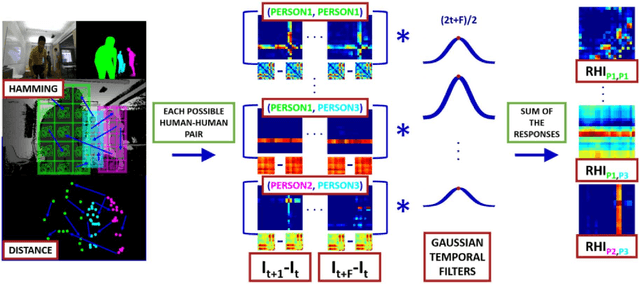
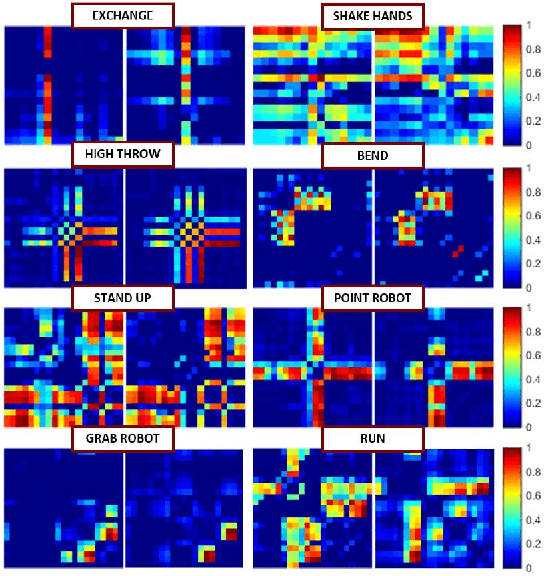
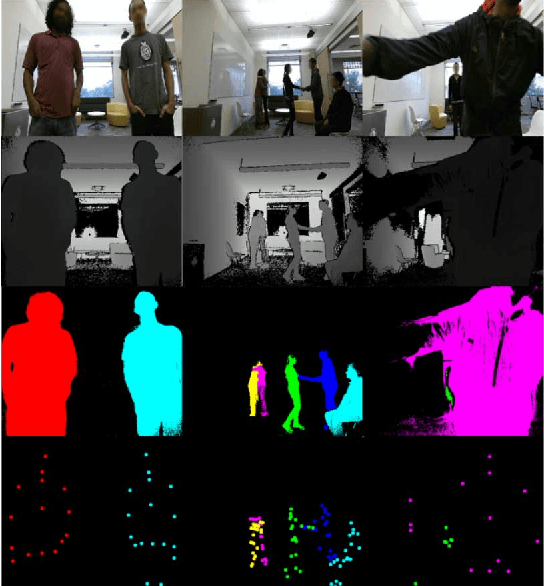
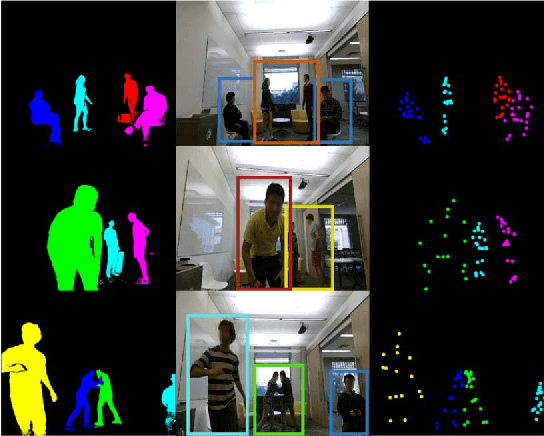
Abstract:Activity recognition is very useful in scenarios where robots interact with, monitor or assist humans. In the past years many types of activities -- single actions, two persons interactions or ego-centric activities, to name a few -- have been analyzed. Whereas traditional methods treat such types of activities separately, an autonomous robot should be able to detect and recognize multiple types of activities to effectively fulfill its tasks. We propose a method that is intrinsically able to detect and recognize activities of different types that happen in sequence or concurrently. We present a new unified descriptor, called Relation History Image (RHI), which can be extracted from all the activity types we are interested in. We then formulate an optimization procedure to detect and recognize activities of different types. We apply our approach to a new dataset recorded from a robot-centric perspective and systematically evaluate its quality compared to multiple baselines. Finally, we show the efficacy of the RHI descriptor on publicly available datasets performing extensive comparisons.
Early Recognition of Human Activities from First-Person Videos Using Onset Representations
Jul 06, 2015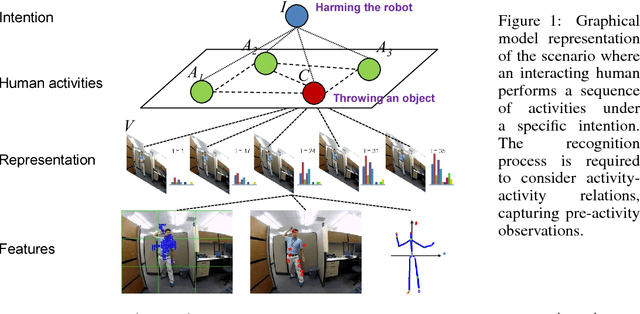
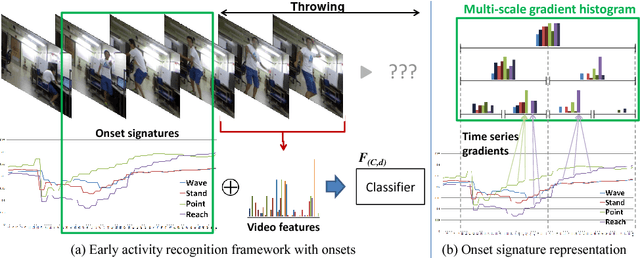

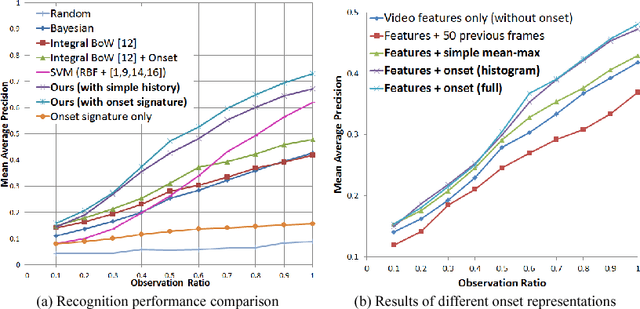
Abstract:In this paper, we propose a methodology for early recognition of human activities from videos taken with a first-person viewpoint. Early recognition, which is also known as activity prediction, is an ability to infer an ongoing activity at its early stage. We present an algorithm to perform recognition of activities targeted at the camera from streaming videos, making the system to predict intended activities of the interacting person and avoid harmful events before they actually happen. We introduce the novel concept of 'onset' that efficiently summarizes pre-activity observations, and design an approach to consider event history in addition to ongoing video observation for early first-person recognition of activities. We propose to represent onset using cascade histograms of time series gradients, and we describe a novel algorithmic setup to take advantage of onset for early recognition of activities. The experimental results clearly illustrate that the proposed concept of onset enables better/earlier recognition of human activities from first-person videos.
 Add to Chrome
Add to Chrome Add to Firefox
Add to Firefox Add to Edge
Add to Edge